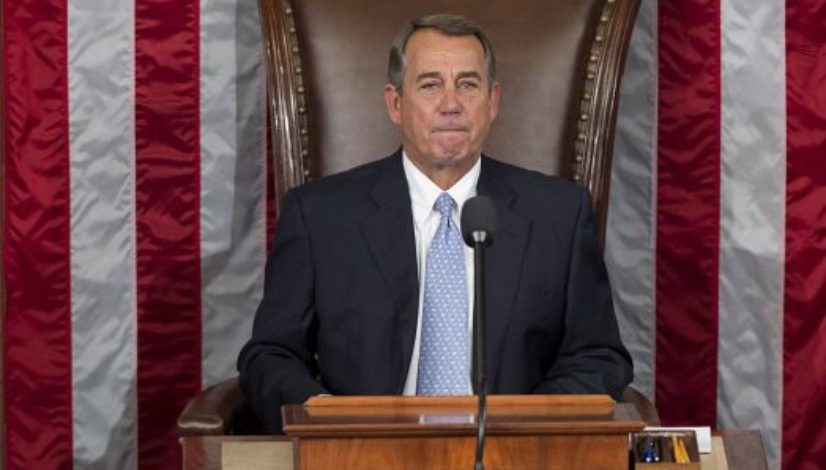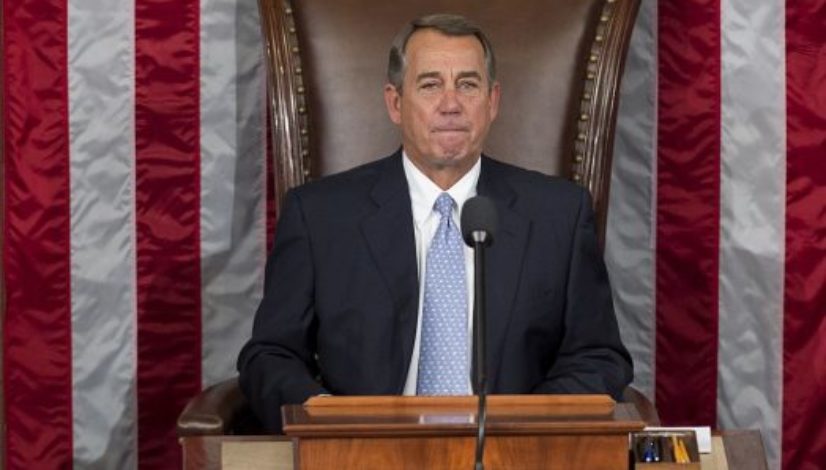John Boehner was a longtime opponent of marijuana reform. Here’s what changed his mind.

Former GOP House speaker John Boehner, a longtime opponent of marijuana legalization, is joining a company that grows and sells cannabis, he announced Wednesday.
He has been appointed to the board of advisers of Acreage Holdings, which operates in 11 states, Boehner said in a statement.
“I have concluded descheduling the drug is needed so that we can do research and allow [the Department of Veterans Affairs] to offer it as a treatment option in the fight against the opioid epidemic that is ravaging our communities,” he said.
The move is a stark reversal for the former speaker, who in 2011 wrote a constituent that he was “unalterably opposed to the legalization of marijuana or any other FDA Schedule I drug,” adding that “I remain concerned that legalization will result in increased abuse of all varieties of drugs, including alcohol.”
Related: Ex-Speaker Boehner, who opposed legalization, joins marijuana firm’s board
Boehner reiterated his opposition to legalization as recently as September 2015.
Spokesperson David Schnittger said Boehner’s evolving position has been the result of close study after leaving office.
Currently, nine states plus the District of Columbia have legalized the recreational use of the drug, while many others allow some sort of medical use. The Justice Department has been prohibited from using federal funds to target state-legal medical marijuana businesses since 2014.
Acreage Holdings spokesperson Lewis Goldberg declined to discuss salary or benefits of its executives.
Boehner is joined on the board of advisers by former Massachusetts governor Bill Weld, a Republican who left office in 1997 and was former New Mexico Gov. Gary Johnson’s running mate in 2016 on the libertarian party ticket. As governor, Welds advocated for medical marijuana legalization since 1992 but his time has a federal prosecutor limited his stance on how far to decriminalize marijuana, he said in 2016.
In a joint statement, Boehner and Weld focused on a long-standing concern among veterans and advocacy groups – federal law classifies marijuana as a Schedule I drug, the same as heroin and ecstasy.
“While the Tenth Amendment has allowed much to occur at the state level, there are still many negative implications of the Federal policy to schedule cannabis as a Class 1 drug: most notably the lack of research, the ambiguity around financial services and the refusal of the VA to offer it as an alternative to the harmful opioids that are ravishing our communities,” Boehner and Weld said.
Current prohibitions have stymied research at the Department of Veterans Affairs to evaluate the drug‘s efficacy in treating post-traumatic stress and physical pain as the result of military service, former VA Secretary David Shulkin said earlier this year. Critics of restrictions say a tangle of federal laws that regulate research and funding have confused VA and lawmakers on what it can and cannot evaluate.
Veterans advocating for decriminalizing marijuana have spoken with Boehner in the past, he said. “It was an argument he heard as a member, considered and never dismissed,” Schnittger said.
Descheduling cannabis would not legalize it nationally, but it would end federal marijuana enforcement and allow states to set their own marijuana policies without federal interference.
Polls show that over 60 percent of Americans favor legalizing marijuana completely, with well over 90 percent in favor of legal medical use. Democrats eying a 2020 presidential run have grown increasingly vocal about the shortcomings of current federal law.
The American Legion, the largest veterans group in the country, found in a 2017 survey that veterans overwhelmingly support marijuana use for medical reasons. About 22 percent of veteran households said they use weed for medical reasons.




